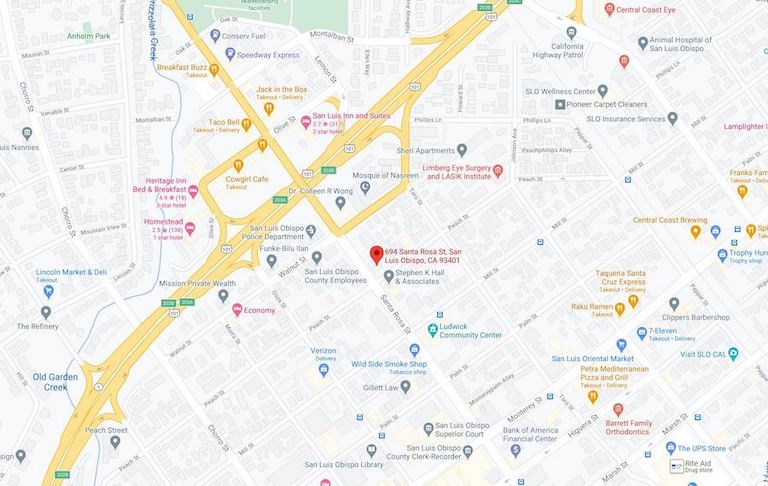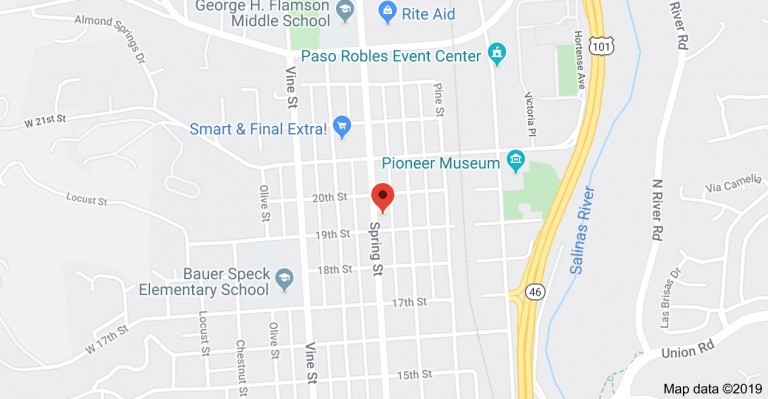As featured in the SLO County Bar Bulletin:
You’ve likely seen the retail signs and product labels telling you something like this: “WARNING: This product contains a chemical known to the State of California to cause cancer and birth defects or other reproductive harm.” Those warnings are the result of efforts by businesses to comply with California’s Proposition 65 – and to avoid expensive enforcement actions. The Proposition requires businesses to provide “clear and reasonable” warnings to individuals prior to exposing them to specified carcinogens and reproductive toxicants. In the 25 years since Proposition 65 was enacted by California voters, those enforcement actions have mostly missed San Luis Obispo County businesses. But it looks like that’s changing, and local businesses should beware: Proposition 65 enforcement is coming to your town.
Thousands of cases have been prosecuted since this law’s enactment, with recent cases targeting businesses located in the San Luis Obispo County area. Private plaintiffs may file enforcement actions if they first serve the alleged violator with a 60-day notice of intent to sue. Private plaintiffs, in fact, bring most of these civil lawsuits and it’s not hard to see the financial motivation: 25% of civil penalties (up to $2500 per day for each alleged violation) as well as attorneys’ fees. Proposition 65 enforcement thus has become a cottage industry in California, with millions of dollars changing hands every year, almost entirely through settlements. The Attorney General’s office, which publishes Proposition 65 statistics, reveals that in 2012 (the most recent year for which data are available), businesses paid over $22 million dollars to a relatively small handful of plaintiffs, with about 70% of that amount in plaintiffs’ attorneys’ fees. There’s more money changing hands: in 2013, almost 1100 notices of intent to sue were served on companies.
What kind of products are Proposition 65 enforcement targets? Think of anything that can be bought or used in California, and you’ve got the list of potential targets. Dietary supplements, upholstered furniture, french fries, placemats, power tools, nail polish, vinegar, paper clips, and coffee have been targets. Hospitals have been targeted over emissions of the sterilizing gas, ethylene oxide. Hotels, restaurants and bars have been targeted over second-hand tobacco smoke.
There are few straightforward defenses. If the 60-day notice of intent to sue fails to meet statutory and regulatory requirements, the private enforcer has no standing to sue. Businesses employing fewer than ten employees are exempted from the law’s requirements. If a plaintiff proceeds with a lawsuit even after the business provides documentation of that exemption, that documentation should establish the basis for a successful summary judgment motion. In addition, special rules apply for allegations of occupational exposures; generally, compliance with the California Hazard Communication Standard is deemed compliance with Proposition 65. As with all general rules, however, real world facts sometimes complicate the analysis and ultimate success of these defenses.
Litigating Proposition 65 enforcement actions fully on the merits is an expensive prospect for a number of reasons. First, the statute shifts the burden to the defendant to prove that no warning is required for the alleged exposure, i.e., that the level of exposure to the Proposition 65 chemical is below the level triggering the warning requirement for that chemical. Second, meeting the defendant’s burden requires experts to analyze the level of Proposition 65 chemical exposure, if any, resulting from the use of the product. No matter how conservative that analysis may be, the plaintiff will dispute it. Third, discovery can be unusually expensive and disruptive, with the plaintiff seeking information about suppliers and customers and serving third-party discovery on them. All told, a full defense on the merits can cost several hundred thousand dollars, and possibly more than $1 million.
Fortunately, on October 5, 2013, Governor Brown signed into law Assembly Bill 227, a bill that made immediate changes to Proposition 65 benefiting certain categories of businesses like bars, restaurants, hotels and parking garages. AB 227 establishes a 14-day “cure period”for four specific types of exposures:
- Exposures to alcoholic beverages on the business’s premises;
- Exposures to Proposition 65 chemicals in foods prepared and sold at the business’s premises, if the chemicals were not intentionally added and were formed as a result of preparing the food;
- Exposures to environmental tobacco smoke occurring on the business’s premises; and
- Exposures to Proposition 65 chemicals in vehicle exhaust occurring on the business’s premises intended primarily for parking.
For these exposures, AB 227 requires the private enforcer to serve the business with a notice of special compliance procedure and proof of compliance form along with the 60-day notice of intent to sue already required under the law. The private enforcer is prohibited from filing a lawsuit if within 14 days after service of the notice, the business takes corrective action, notifies the private enforcer that corrective action has been taken, and agrees to pay $500. In these circumstances, the private enforcer also is prohibited from seeking additional payments and attorneys’ fees from the business.
With the increase of these types of lawsuits in SLO County, it is important for all attorneys to become familiar with the new procedures enacted by AB227 in order to protect their clients from costly litigation and costs. We can only hope that future amendments to this bill will go further to protect other businesses from unnecessary lawsuits.
There is no one-size-fits all approach to managing the risk of being sued under Proposition 65. But businesses first must understand that there is a risk. With enforcement activity reaching closer to home, don’t let your business become an enforcement target.
The information provided herein does not, and is not intended to, constitute legal advice; instead all information, content, and materials are for general informational purposes only.
Ziyad Naccasha is a partner and co-founder of Carmel & Naccasha, LLP with offices in San Luis Obispo and Paso Robles. He counsels domestic and international companies, their shareholders and officers in a variety of matters. Ziyad can be reached at 805-546-8785.
Ann Grimaldi practices environmental law at Grimaldi Law Offices. Her practice focuses on federal and state chemical and product regulation, including California’s Proposition 65 and the California Green Chemistry Initiative. Ann can be reached at ann.grimaldi@grimaldilawoffices.com or 415-463-5186.
SF 27577034.1


